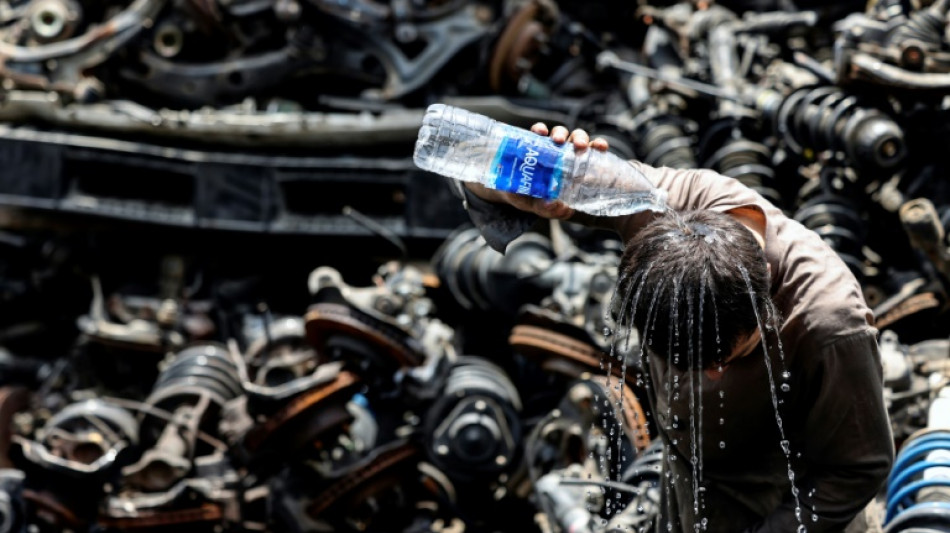
-
 Sabalenka fires Australian Open warning with Brisbane domination
Sabalenka fires Australian Open warning with Brisbane domination
-
In Gaza hospital, patients cling to MSF as Israel orders it out

-
 New protests hit Iran as alarm grows over crackdown 'massacre'
New protests hit Iran as alarm grows over crackdown 'massacre'
-
Svitolina powers to Auckland title in Australian Open warm-up

-
 Keys draws on happy Adelaide memories before Australian Open defence
Keys draws on happy Adelaide memories before Australian Open defence
-
Scores of homes razed, one dead in Australian bushfires

-
 Ugandan opposition turns national flag into protest symbol
Ugandan opposition turns national flag into protest symbol
-
Bears banish Packers, Rams survive Panthers playoff scare

-
 'Quad God' Malinin warms up for Olympics with US skating crown
'Quad God' Malinin warms up for Olympics with US skating crown
-
India eyes new markets with US trade deal limbo
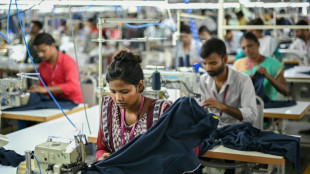
-
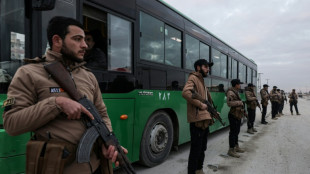 Syria's Kurdish fighters agree to leave Aleppo after deadly clashes
Syria's Kurdish fighters agree to leave Aleppo after deadly clashes
-
New York's Chrysler Building, an art deco jewel, seeks new owner
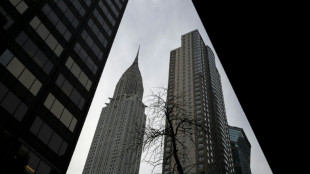
-
 AI toys look for bright side after troubled start
AI toys look for bright side after troubled start
-
AI pendants back in vogue at tech show after early setback

-
 Grateful Dead co-founder and guitarist Bob Weir dies aged 78
Grateful Dead co-founder and guitarist Bob Weir dies aged 78
-
Myanmar votes in second phase of junta-run election
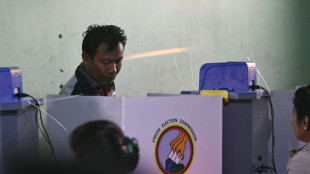
-
 'One Battle After Another' heads into Golden Globes as favorite
'One Battle After Another' heads into Golden Globes as favorite
-
Rams survive Panthers scare to advance in NFL playoffs

-
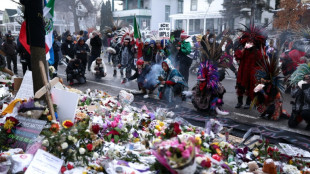 Rallies across US after woman shot and killed by immigration agent
Rallies across US after woman shot and killed by immigration agent
-
Egypt dump out holders Ivory Coast as Nigeria set up AFCON semi with Morocco

-
 Rosenior salutes 'outstanding' start to Chelsea reign
Rosenior salutes 'outstanding' start to Chelsea reign
-
Maduro loyalists stage modest rally as Venezuelan govt courts US
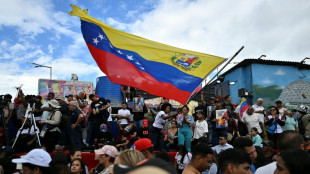
-
 Byrne late penalty fires Leinster into Champions Cup last 16 after 'ding-dong' battle
Byrne late penalty fires Leinster into Champions Cup last 16 after 'ding-dong' battle
-
Rosenior makes flying start as Chelsea rout Charlton in FA Cup

-
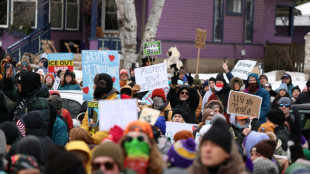 Rallies across US against shooting of woman by immigration agent
Rallies across US against shooting of woman by immigration agent
-
Salah closer to AFCON glory as Egypt dethrone champions Ivory Coast

-
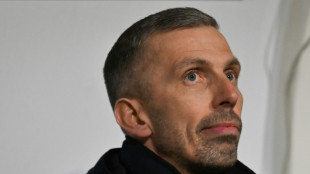 O'Neil ends 'crazy three days' with Strasbourg cup canter
O'Neil ends 'crazy three days' with Strasbourg cup canter
-
Mitchell leads Cavs over T-Wolves

-
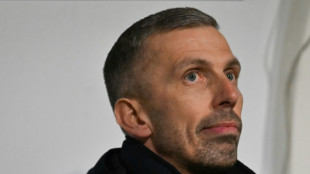 O'Neil ends 'crazy few days' with Strasbourg cup canter
O'Neil ends 'crazy few days' with Strasbourg cup canter
-
Argentina wildfire burns over 5,500 hectares: governor

-
 Byrne late penalty fires Leinster into Champions Cup last 16
Byrne late penalty fires Leinster into Champions Cup last 16
-
Roma beat Sassuolo to close in on Serie A leaders Inter

-
 Villa's FA Cup win at Spurs leaves Frank on the brink
Villa's FA Cup win at Spurs leaves Frank on the brink
-
Osimhen focused on Nigeria glory not scoring record

-
 Undav calls shots as Stuttgart thump Leverkusen
Undav calls shots as Stuttgart thump Leverkusen
-
Venezuelan prisoners smile to hear of Maduro's fall
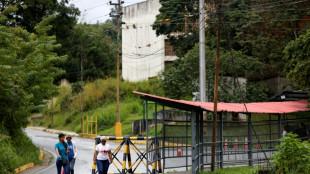
-
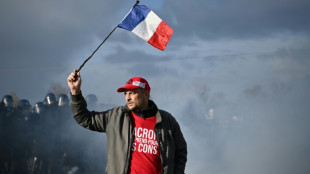 Thousands of Irish, French farmers protest EU-Mercosur trade deal
Thousands of Irish, French farmers protest EU-Mercosur trade deal
-
Kiplimo captures third straight world cross country title

-
 Osimhen leads Nigeria past Algeria into AFCON semi-finals
Osimhen leads Nigeria past Algeria into AFCON semi-finals
-
US urges fresh talks between Syria govt, Kurds after deadly clashes
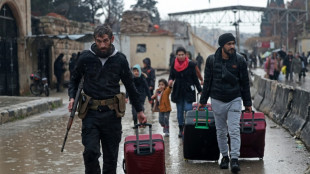
-
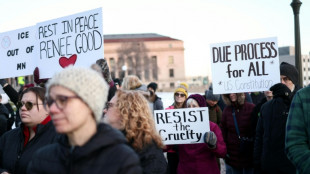 Weekend of US protests after woman killed by immigration agent
Weekend of US protests after woman killed by immigration agent
-
Monaco cling on with 10 men to avoid French Cup shock

-
 Rooney close to tears as brother masterminds FA Cup history
Rooney close to tears as brother masterminds FA Cup history
-
Semenyo scores on Man City debut in 10-goal rout of Exeter

-
 Villarreal sink Alaves to stay in La Liga hunt
Villarreal sink Alaves to stay in La Liga hunt
-
Bristol, Glasgow reach Champions Cup last 16

-
 Freiburg beat 10-man Hamburg to climb to eighth in the Bundesliga
Freiburg beat 10-man Hamburg to climb to eighth in the Bundesliga
-
Venezuela loyalists to rally one week after Maduro's capture
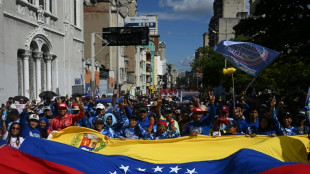
-
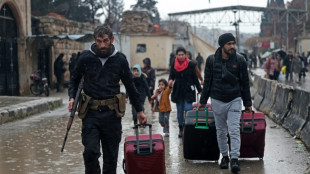 Syrian authorities transferring Kurdish fighters from Aleppo to northeast
Syrian authorities transferring Kurdish fighters from Aleppo to northeast
-
Football: Five memorable FA Cup upsets


Summer means suffering: how workers survive intense Gulf heat
Like millions of other migrant labourers in the Gulf, one of the world's hottest and driest regions, construction worker B. Sajay does not welcome summer.
"We work in very high temperatures, this is the nature of our work. And yes, we suffer from severe heat," the Indian national told AFP in Muscat, the capital of Oman.
Although summer has only just begun, temperatures have already topped 50 degrees Celsius (122 Fahrenheit) in parts of the desert region, which is bearing the brunt of climate change.
Summer means suffering for anyone working outside, along with risks of dehydration, heat stroke and heart failure, and Gulf countries have banned working outside in the hottest hours of the day.
"The only thing that relieves us is the period of rest... in the middle of the day," said Sajay, who has been working on building sites for six years.
Last year, a World Health Organization report found the risk of death doubling or tripling on extremely hot days in Kuwait, with a disproportionate effect on non-Kuwaiti men, who make up the bulk of outdoor workers.
Workers from India, Pakistan, Nepal, Sri Lanka and Bangladesh are ubiquitous in the oil-rich Gulf countries, providing cheap labour and filling the jobs shunned by citizens in favour of high-paying government positions.
The imported labourers typically work on construction sites or collect rubbish, sweep the roads or deliver food.
- Unbearable even in the shade -
Between June and August, the oil-producing Gulf countries -- Saudi Arabia, United Arab Emirates, Qatar, Kuwait, Bahrain and Oman -- ban working outside for about four hours starting from noon.
Workers return to their dormitories or nestle in any shade they can find. But increasingly, it's unbearable even in the shade.
On the first day of summer on Tuesday, temperatures reached 50 degrees Celsius in many places, including Saudi Arabia and Kuwait which recorded in May the hottest temperature of the month worldwide, 53.2 degrees Celsius (128.8 Fahrenheit).
"The last 10 years have been the hottest seen in Kuwait," said Kuwaiti meteorologist Issa Ramadan, adding: "Summer in Kuwait now extends to September, and sometimes to parts of October."
In Muscat, workers paving a road with asphalt covered their heads with colourful scarves and hats, while others found shade under date palms in the middle of a two-way street. Passersby held umbrellas to protect themselves from the scorching sun.
"In order to complete the eight-hour shift as early as possible, sometimes I start working from six in the morning, stop during the rest period, and then do two more hours," said Muhammad Mukarram, a Bangladeshi construction worker.
The region-wide problem has long drawn concern. Human rights groups have urged Qatar, host of this year's World Cup, to investigate workers' deaths connected to "heat distress".
There are no reliable figures on the deaths of migrant workers in Gulf countries, which do not release statistics and have regularly contested estimates released by NGOs and the media.
A recent study by the Vital Signs Partnership, a group of human rights organisations mainly from Asian countries, said that "as many as 10,000 migrant workers from south and southeast Asia die in the Gulf every year".
The March 2022 report said that more than half of the cases were recorded as "natural causes" or "cardiac arrest".
- Deadly heat -
In 2020, a study published in the journal Science Advances found that the Gulf has the hottest and most humid weather anywhere on Earth.
Scientists have calculated that even with shade and unlimited drinking water, a healthy adult will die if "wet-bulb" temperatures -- which take into account factors such as humidity, wind speed and cloud cover -- exceed 35 Celsius for six hours.
The study showed that there have only ever been 14 occasions on land when the measure exceeded 35C, all in the past two decades and eight of them in the Gulf.
Another study in the journal Nature Climate Change found that "within this century, parts of the... Gulf region could be hit with unprecedented events of deadly heat as a result of climate change".
"If we do not change course, these temperatures will keep rising over the years, reaching a level where outdoor human activities in the Gulf, such as the hajj pilgrimage, would be nearly impossible in summer," Julien Jreissati, programme director at Greenpeace MENA, told AFP.
Saudi Arabia is preparing to welcome one million pilgrims next month to perform the annual Muslim rituals.
"The only solution is to reduce our reliance on fossil fuels which are the main driver of climate change and transition gradually but quickly towards renewable energy," said Jreissati.
Saudi Arabia, the UAE and Bahrain have pledged to reach net zero domestic carbon emissions in the coming decades, while expanding oil production.
C.Hamad--SF-PST


